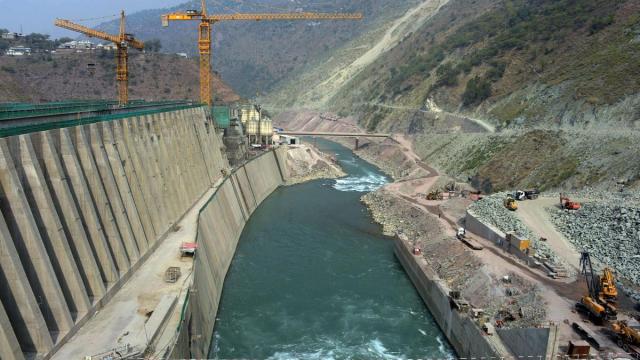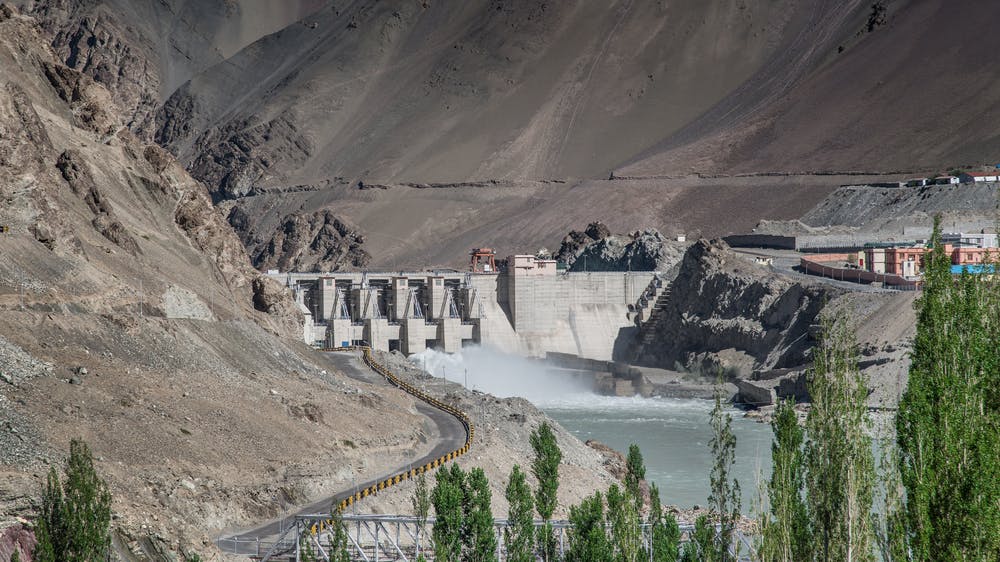
PESHAWAR, Pakistan – For the people of Afghanistan and Pakistan, the Kabul River has for centuries provided fish to eat, irrigation for agriculture and freshwater for drinking. The river gave birth to the world’s splendid Gandhara civilization that flourished across the region, now parts of both countries, until the 2nd century AD. Still today, both sides of the river border enjoy the same ethnicity, language and culture. But these strong bonds have failed to stave off the geopolitical conflict growing ever since the British Empire left the subcontinent.
Now, climate change and environmental degradation are stoking a new crisis between the neighbors, who share a 2,500-kilometer border, as both countries face water stress and are aiming to use the maximum of the river water that they can. Meanwhile India, Pakistan’s arch rival, has jumped into the controversy to help war-ravaged Afghanistan build several dams, which will not only reduce the water flow into Pakistan but could erode already frayed relations between the countries.
There is currently no bilateral agreement between Afghanistan and Pakistan despite the fact that they share a trans-boundary river. In 2006, with the help of the World Bank, both countries conducted dialogues to create a water sharing formula, but they couldn’t reach a conclusion.
A growing conflict over a basic resource
The Kabul River is a tributary of the Indus water system and originates in the Hindu Kush mountain range. The 700-kilometer-long river runs through Afghanistan and Pakistan and ultimately joins the Indus near Attock City. Though the Kabul originates in Afghanistan, Pakistan contributes almost 70 percent of the river's water from its mountainous Chitral region, comprising the Chitral River in Pakistan and the Kunar River in Afghanistan.
Now, with new India-financed dams being placed on Kabul River, Pakistan considers the move part of an Indian conspiracy against the increasingly water- and food-stressed Pakistan. The government in Delhi agreed to build the $236 million Shahtoot Dam for Afghanistan more than two years after it completed the Salma Dam at Herat province.
Since 2001, Dehli has embarked on a series of infrastructure development projects that include the eventual construction of 12 dams across the region. And for Pakistan, the ecological effects are already being felt.
“Water-flow in three main tributaries of the river has already decreased by 50 present,” said Dr. Shabier Ahmad Khan, director of the Area Study Center at the University of Peshawar. “The planned 12 dams will change the entire ecology of the Kabul River flowing through Pakistan. There will be a severe water shortage, crop failure, droughts, socio-economic complications and mass human migrations.”
The people of the agricultural area of North West Pakistan are particularly dependent on its water. Since the announcement that Afghanistan would build 12 dams on the Kabul River, there has been widespread fear among farmers that water flow into Pakistan would be completely blocked.
Khan added that water flow in all three tributaries of the Kabul – the Shah Alam, Naguman and Sardaryab rivers – have already been reduced. Now that Kabul is planning to set up several dams on the river with the help of India and the World Bank, the repercussions will be even more serious.
“It will turn almost 70 percent of our province into deserts,” predicted Khan, noting that there will be hightened food insecurity in the Peshawar region as the river irrigates Peshawar, Charssada, Swabi and Nowshera – the food basket of Khyber Pakhtunkhwa.
Conflict over river water distribution isn’t only limited to this region but exists around the world. The crisis has reached some European countries and has long simmered in South Asia. Now, the issue over water access and water rights is coming to a head in Central Asia as well as between Afghanistan and Pakistan.
A longstanding precedent
Before the USSR’s war in Afghanistan, Kabul had managed to solve some of its water conflicts under international rules by signing a treaty with the former Soviet Union that resolved the conflict over water in the Amu River. Afghanistan faced another water conflict, with Iran, over the Helmand River, which it also resolved by signing an agreement. But due to the invasions and civil wars in the country, the treaty couldn’t be implemented in any real sense, and Iran is still being accused of using Kabul's share of water. The Afghan government admitted that it still relies on that contract with Iran.
As for the current Kabul River crisis, Afghanistan believes it should likewise be solved through negotiation between the two countries, using prior international laws as a guide. “Afghanistan has the right to construct dams on Kabul River, but Kabul will comply with all the international rules and laws and will keep in sight all the negative effects on the region,” said Professor Muhammad Moeen Marastyal, the Afghan Consul General in Peshawar.
He added that both the countries should use the water according to international regulations and urged Afghanistan and Pakistan to sign a mutual contract to avoid another water conflict in the region.
Though there is no bilateral treaty between the two nations, international agreements signed by the countries – like the Biodiversity Convention of 1995, which compels both of them to work on maintaining biodiversity and avoiding further degradation of the natural environment.
Still, experts are accusing India of stoking the conflict between Pakistan and Afghanistan – and warning of the dangerous consequences that could follow.
“India in Afghanistan has designed projects, just like they have in Kashmir in violation of the Indus River water treaty,” said another professor, Dr. Fakhrul Islam, who accused India of directly fuelling the conflict in the region.
“The issue of water is getting complicated day by day, as the water resources are depleting fast. If an agreement is not signed, it will have very negative impacts on the bilateral relations and could lead to more wars in the region.”















